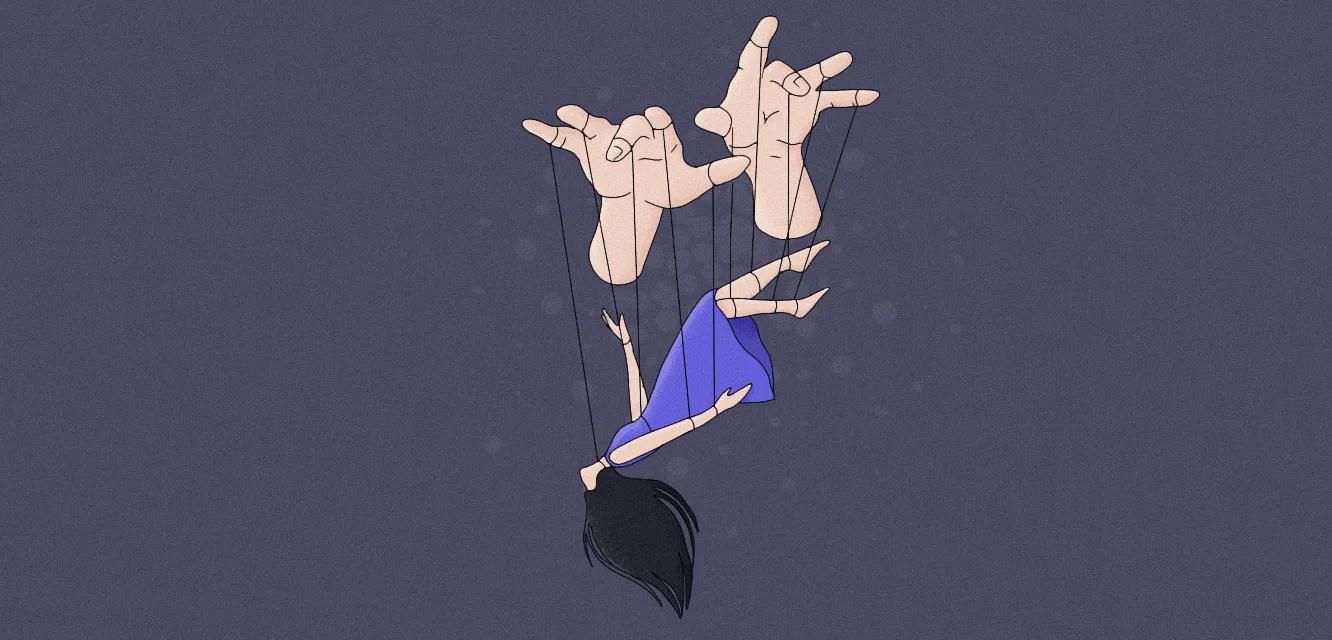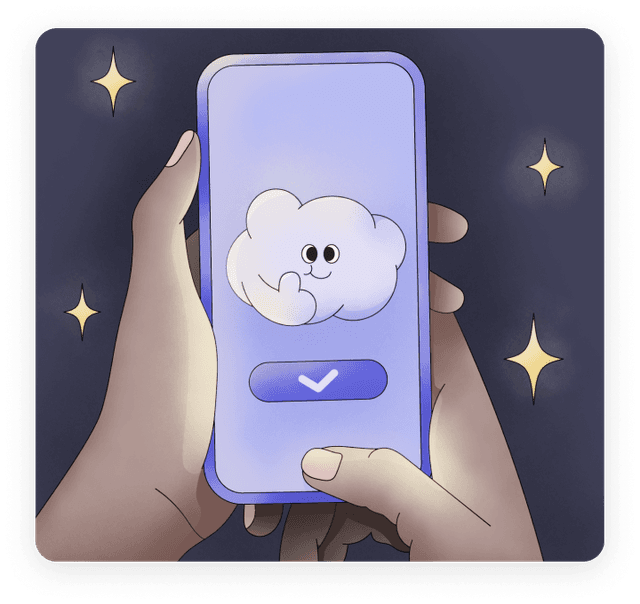
Denys Chumak
13 Jan 2024
Violent Dreams Meaning: Why Are My Dreams So Violent?
Ever wake up in a cold sweat, your heart pounding after a particularly disturbing dream? We've all had our fair share of strange or frightening dreams, but if yours frequently feature violence, death or gore, you may be left wondering why your mind conjures up such scary scenarios.
Don't worry; having frequent violent dreams doesn't necessarily mean there's something wrong with you. While the violent dreams meaning can be complex, violent dreams are often a reflection of your unconscious mind processing unexpressed emotions or unresolved anxieties in your waking life.
Understanding Violent Dreams Meaning
Violent dreams can be unsettling, even frightening. But what do they really mean? Your subconscious may be trying to tell you something.
These types of dreams are often a way for your mind to work through intense emotions or anxieties that you’re grappling with in your waking life. Maybe you’re feeling powerless in a relationship or situation. Your mind may dramatize these feelings in a violent dream to help you gain awareness and find ways to empower yourself.
Traumatic events from your past can also surface in violent dreams. Your mind is attempting to process unresolved feelings or memories as a way to find closure. Don’t avoid these dreams. Pay attention to them. They offer insight into your mental and emotional state.
Some other possible violent dream meanings:
-
You have pent-up anger or aggression that needs an outlet. Find healthy ways to release these feelings, like exercise or art.
-
You feel out of control in some areas of your life. Look for small ways to regain your sense of control and stability.
-
You have a hard time expressing your emotions openly. Work on communicating your feelings to others in a constructive way.
-
You have anxiety about being unable to protect yourself or loved ones. Practice self-care techniques like meditation or yoga to help build your confidence and inner strength.
The violent dream meaning is complex. But understanding them better can help you achieve greater self-awareness and make positive changes in your life. Don't be afraid to explore the messages in your dreams. They may be disturbing, but they also contain wisdom.
Common Triggers for Violent Dreams
Violent dreams can be triggered by many things. One of the most common is stress or anxiety in your waking life. When you're stressed, your mind is hyperactive and your emotions are heightened. This state of arousal continues into your sleep, manifesting in violent dreams. Some other triggers include:
Traumatic events. Experiencing or witnessing a traumatic event like an accident or act of violence can lead to violent dreams as your mind attempts to process what happened.
Media influence. Watching violent TV shows, and movies, or playing graphic video games before bed puts those images in your mind, and they can surface in your dreams.
PTSD. For those with post-traumatic stress disorder, violent dreams are common. Flashbacks and memories of traumatic events are replayed in an uncontrolled fashion during sleep.
Unresolved anger or aggression. Built-up anger, resentment or aggression towards someone or something in your life can emerge in dreams through violent acts. Your dreams reflect the inner turmoil you're grappling with.
Relationship issues. Problems or power struggles in close relationships can trigger violent dreams as you work through emotions like frustration, hurt or feelings of lack of control.
The mind is complex, so violent dreams may arise from a combination of these factors. But the good news is there are steps you can take. Managing stress, limiting media influence before bed, confronting emotional issues, and speaking to a therapist are all strategies that can help reduce violent dreams and make your sleep more peaceful.
Psychological Explanations for Violent Dream Content
Violent or frightening dreams can be distressing, but they often have meanings that relate to your mental and emotional state. One theory is that violent dreams represent unexpressed anger or aggression in your waking life. Have you been bottling up frustration towards someone or something recently? Your mind may be working through those feelings in your dreams.
Another view is that violent dreams signify feelings of powerlessness or loss of control in your daily life. If you've been dealing with stressful situations where you feel helpless, your dreams could be a way of regaining power or control, even if in unpleasant ways.
Your dreams may also reflect anxiety, fear or insecurity. Violent images could be a manifestation of worries or threats you perceive, even unconsciously. For example, if you're apprehensive about an upcoming work review or medical test, your mind may express that as a violent confrontation in a dream.
Traumatic events can also trigger violent dream content as your mind works to process the experience. The violence may directly relate to the trauma, or it could represent emotions like fear, rage or betrayal. Dreaming about violence repeatedly may indicate unresolved trauma that requires support to work through.
In many cases, an isolated violent dream may not signify anything deeply concerning. However, if violent dreams are frequent or intense, or if they cause significant distress, it may help to explore the meaning of dreams and work to resolve any underlying issues with the support of a counsellor or therapist. Discussing the dreams, your reactions to them and events in your life can provide insight into their psychological significance and help reduce their frequency or intensity over time.
Also read: Psychology Of Dreams: Why We Dream, How To Interpret
Tips for Coping With Frequent Violent Dreams
Violent dreams can be unsettling and frightening. While the scenes you witness in your dreams aren't actually happening, they can feel very real and leave you with a lingering sense of distress. Here are some tips for coping with frequent violent dreams:
1. Practice relaxation techniques before bed.
Doing some light meditation, deep breathing, or gentle yoga before sleeping can help calm your mind and body, making you less susceptible to violent dreams. Reducing stress and anxiety during the day may also decrease their frequency.
Establish a calming pre-sleep routine.
A routine that helps you unwind, such as taking a warm bath, reading a book, or listening to soothing music, can make you less prone to violent dreams. The more relaxed you are at bedtime, the less likely your dreams will be turbulent or frightening.
Write down your dreams.
Keeping a dream journal where you record the details of your dreams, violent or not, can help reduce their intensity over time. The act of writing them down can make them feel less threatening. Look for any patterns in settings, characters, emotions, etc. that may provide insight into their meaning.
Practice reality checks.
Reality checks involve doing things like flipping a light switch, looking at a clock, or trying to push your finger through your palm to check if you're awake or asleep. Doing these checks during violent dreams can help you gain awareness and control, allowing you to wake yourself up or change the dream's direction.
Talk to someone.
Speaking with a therapist or counsellor about frequent violent dreams can help uncover their underlying cause and provide strategies for coping with them. Simply talking to a trusted friend or family member may also help you feel less distressed.
Seek professional help if needed.
If violent dreams are significantly disrupting your sleep or daytime wellbeing, it may help to consult a psychologist or psychiatrist. Therapy and medications are options that can be explored to reduce symptoms like intense anxiety, trauma, or PTSD that may be contributing to the dreams.
Also read: Dreamed about a Cat: Symbolic Interpretation
Conclusion
So there you have it, some insight into why your dreams may be on the more violent and intense side. Dreams are a window into your subconscious mind, and violent dreams can be your brain's way of working through stressful life events or confronting emotions you may not even realize you're experiencing during your waking hours.
Don't panic; having an occasional violent dream is typically nothing to worry about and is quite common. However, if the violence in your dreams is ongoing or extremely disturbing, it may help to talk to a therapist. They can help you work through what your dreams may be trying to tell you and give you strategies for gaining more peace of mind.
FAQs
1. Are violent dreams normal?
Yes, violent dreams are common and generally normal. Many people experience occasional violent or frightening dreams. Dreaming about violence does not mean there is anything wrong with you or that you have violent tendencies. Dreams are a way for your mind to work through emotions, anxieties, and experiences from your waking life.
2. Do violent dreams mean I'm angry or aggressive?
Not necessarily. Violent dreams may be a reflection of feelings from your daily life, but they do not necessarily mean you are an angry or violent person. Dreams tend to use symbolic imagery and metaphors, so violence in dreams does not always translate directly into aggressive waking behaviour. However, if you frequently have violent thoughts or feelings in your waking life, it may be worth reflecting on the meaning and discussing it with a therapist.
3. How can I stop having violent dreams?
There are a few things you can try to reduce violent dreams:
-
Practice relaxation techniques before bed. Reducing anxiety and stress can lead to more peaceful sleep and dreams.
-
Establish a calming pre-sleep routine. A routine that helps you unwind can relax your mind and body, enabling more pleasant dreams.
-
Write down your thoughts or a to-do list. This can help get worries off your mind so you can sleep more soundly.
-
Make sure not to consume violent media close to bedtime. The images and emotions can carry over into your dreams.
-
Talk to a therapist if violent dreams are frequent or disturbing. Speaking to a professional counsellor or therapist may help you gain insight into the meaning and find strategies for coping with distressing dreams.
-
Consider keeping a dream journal. Recording your dreams may help you identify themes and work through the emotions or anxieties fueling them. With time and effort, you may gain more awareness and control over dream content.
Did you have an unusual dream with this symbol?
Let's analyze this dream with our expert!
At least five words, please.

Your dreams are completely private
Take control of your dream emotions in the free mobile app



The most recent users' dreams
Go to the user dreams page
Dream App
Free dream interpretations

(1,213)











